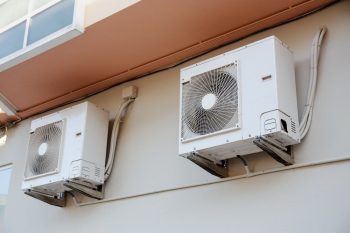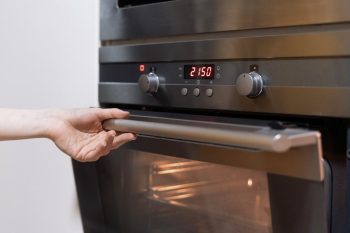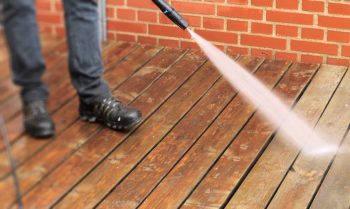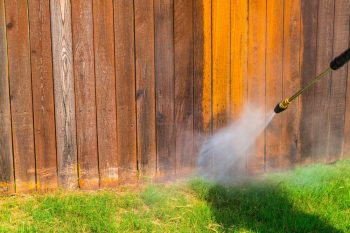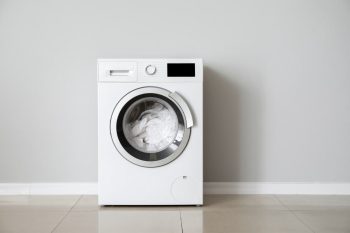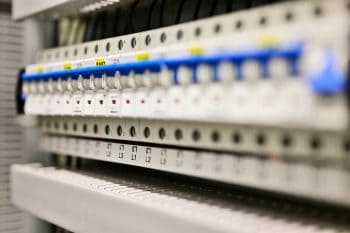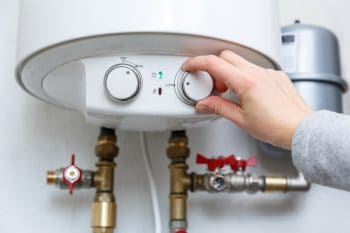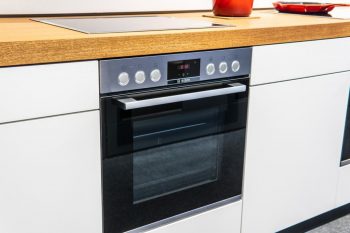
Air conditioning (AC) is a crucial component of our homes, especially during hot summer months. However, you may have noticed that your AC seems to work better at night than during the day. This article will delve into the reasons behind this phenomenon and provide actionable tips to improve your AC’s efficiency throughout the day.
Your AC may work better at night due to lower outdoor temperatures, reduced sunlight, and lower humidity levels, which all ease the cooling load on the unit. However, with regular maintenance, proper insulation, and the use of programmable thermostats, you can improve your AC’s efficiency during the day.
Role of Outside Temperature and Sunlight
The outside temperature is one of the primary factors affecting your AC’s performance. During the day, the AC has to work harder to cool the indoor air as the outside temperature is higher. Moreover, sunlight entering your home can further increase the indoor temperature, adding to the cooling load on the AC unit. At night, however, the absence of sunlight and lower outdoor temperatures make it easier for your AC to maintain a comfortable indoor temperature.
Humidity Levels and AC Performance
Humidity also plays a significant role in how your AC functions. High humidity levels can make the air feel warmer, causing your AC to work harder to cool your home. At night, humidity levels tend to be lower, which can make the air feel cooler and more comfortable, easing the workload on your AC unit.
Consistent AC Performance: Inverter Compressors and Variable-Speed Models
While most AC units may perform better at night due to the reasons mentioned above, some specific models and features can help maintain consistent performance throughout the day. Inverter compressors found in models like the Midea U MAW08V1QWT and the Frigidaire Gallery GHWQ083WC1 adjust their speed to match the cooling demand, providing more consistent temperature control and energy efficiency. Variable-speed models, such as Carrier’s Infinity 26 air conditioner with Greenspeed® technology, also offer consistent performance by adjusting speed based on cooling demand.
Improving Daytime AC Efficiency: Actionable Tips
While it’s natural for your AC to work better at night, there are steps you can take to improve its efficiency during the day:
- Regular Maintenance: Regularly clean and replace your AC filters, and schedule annual inspections with a licensed professional.
- Seal Air Leaks: Seal any air leaks around windows, doors, and ductwork to prevent cool air from escaping and warm air from entering your home.
- Use a Programmable Thermostat: A programmable thermostat can adjust the temperature based on your daily schedule, reducing the cooling load on your AC unit during the day when you’re not home.
- Insulate Your Home: Adequate insulation can prevent heat gain from sunlight, reducing the cooling load on your AC unit during the day.
- Install Your AC in the Shade: Installing your AC unit in a shaded area can prevent it from overheating, improving its efficiency.
In conclusion, your AC might work better at night due to lower outdoor temperatures, reduced heat gain from the sun, and lower humidity levels. However, by following the above tips, you can improve its efficiency during the day, keeping your home comfortable and potentially reducing energy costs. For more detailed information, consider consulting with an HVAC professional.
Frequently Asked Questions
What does HVAC stand for?
HVAC stands for Heating, Ventilation, and Air Conditioning. It refers to the systems used for moving air between indoor and outdoor areas, along with heating and cooling both residential and commercial buildings.
What are the benefits of a programmable thermostat?
A programmable thermostat allows you to set a schedule for your AC unit, so it adjusts the temperature based on your daily routine. This not only helps maintain a comfortable temperature but also reduces energy use, potentially saving you money on your utility bills.
What does an inverter compressor do in an AC unit?
An inverter compressor in an AC unit adjusts its speed in response to the cooling demand. This allows for more precise temperature control, reduces energy consumption, and provides a more consistent cooling experience compared to traditional models.
How often should I replace my AC filters?
It’s generally recommended to replace your AC filters every 60 to 90 days. However, if you have pets or someone in your household has allergies, you may need to replace them more frequently, ideally every 30 days.
Why is it important to seal air leaks in my home?
Sealing air leaks in your home prevents cool air from escaping and warm air from entering. This can significantly improve the efficiency of your AC unit, maintain a more consistent indoor temperature, and help reduce your energy costs.

